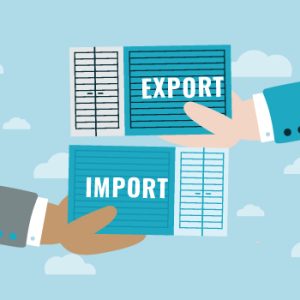Certified Translation for Import-Export Documentation: Ensuring Accuracy and Compliance

In the world of international trade and commerce, the efficient exchange of goods and services frequently depends on meticulous communication and adherence to legal stipulations. Central to this mechanism is the translation of documents, particularly within the import-export sector. Therefore, accurate and legally certified translations become crucial for ensuring seamless operations. This is where certified translation for import-export documentation comes into play.
In the global landscape of international markets, the importance of native language proficiency cannot be overstated. Quality translation services play a pivotal role in bridging the language barrier and facilitating effective communication with target markets. Export translation services become invaluable in translating essential documents such as bills of lading and financial documents, ensuring accuracy and compliance. Native language expertise in crafting marketing material is crucial for resonating with potential customers, allowing businesses to navigate diverse linguistic landscapes and establish meaningful connections in the competitive global marketplace.
What is Certified Translation for Import-Export Documentation?
Certified translation for import-export documentation is the process of translating official documents, often of a legal or business nature, into the target language required for international trade and regulatory purposes. These translations are performed by professional translators, well-versed in legal and business terminologies. Their goal is to provide high-quality, accurate translations that preserve the integrity and legal validity of the source documents.
Why Is Certified Translation Necessary?
- Legal Compliance: When dealing with government agencies and foreign business partners, legal documents must meet specific linguistic and cultural standards. Certified translations ensure that your documents are compliant with the laws and regulations of the target country.
- Accurate Translations: Business documents like financial statements, export documents, and non-disclosure agreements require precision. Inaccurate translations can lead to misunderstandings, financial losses, or even legal complications.
- Official Recognition: Certified translations are often a requirement for government offices, foreign partners, and academic institutions. They provide the necessary assurance of accuracy and authenticity.


The Role of Professional Translators
Certified translation for import-export documentation requires professional translators who possess a deep understanding of legal terminology and business jargon. They should be native speakers of the target language with a comprehensive grasp of the source language. The language pair, or the combination of the source and target languages, is a critical factor in ensuring an accurate and effective translation.
Types of Documents that Require Certified Translation
- Legal Documents: Contracts, patents, immigration documents, and non-disclosure agreements.
- Business Documents: Financial statements, employee handbooks, and export documents.
- Personal Documents: Marriage certificates, birth certificates, divorce decrees, death certificates, and medical documents.
- Official Documents: Government reports, licenses, and permits.
- Academic Documents: Transcripts, diplomas, and certificates for educational and professional purposes.
The Translation Process
- Source Document Analysis: Professional translation services begin with a thorough examination of the source document. Understanding the content, context, and nuances is vital.
- Certified Translators: Certified translators are employed to perform the best translation. These experts are familiar with the legal and business aspects of the documents.
- Translation Memory: Translation memory tools are often used to maintain consistency in terminology and style, particularly in long-term projects.
- Quality Assurance: The translated document is reviewed and edited to ensure accuracy and compliance with legal and business standards.
Translation Costs and Timelines
The cost of certified translation for import-export documentation can vary based on factors such as the type of document, language combinations, and the complexity of the content. Additionally, the urgency of the translation may affect the cost. It’s essential to consult with a reputable translation agency or company to get an accurate quote.
The timeline for translation largely depends on the document’s length and complexity, but most official translation services provide reasonable turnaround times, typically measured in business days.


Avoiding Machine Translations
While machine translations have made significant progress, they fall short when it comes to the critical nature of import-export documentation. Automated translations may lack the precision and cultural context required for legal and business documents.
Conclusion
Certified translation for import-export documentation is, therefore, a crucial component of international trade and commerce. Consequently, legal, business and personal documents need accurate translation by certified translators to ensure compliance and effective communication. Thus, by engaging professional translation services, businesses can navigate the global market with confidence and precision, assured of the reliability and authenticity of their translated documents.
Frequently Asked Questions
Immigration authorities frequently require certified translations to ensure the accuracy and authenticity of foreign-language documents. Consequently, this process helps them review and process immigration applications accurately, thereby maintaining the integrity of the immigration system.
A certified translation includes a certification statement, attesting to the accuracy and completeness of the translation. It also includes the credentials and signature of the translator, giving the document legal standing. Regular translations, on the other hand, may lack this certification.
Professional translation agencies specialize in translating official documents; consequently, they are familiar with the specific requirements set by immigration authorities, such as the USCIS. Furthermore, they employ experienced translators who ensure your documents meet the necessary standards and provide quick turnaround times.
Various documents, such as marriage certificates, divorce decrees, birth certificates, academic transcripts, and financial statements, may need certified translation for immigration. Different documents require different types of translation services, and professional agencies can handle all these needs in compliance with immigration guidelines.
Despite advancements in automated tools, experts advocate for human translations when dealing with critical legal and personal documents. Competent translators, particularly those who are native speakers of the source language, adeptly capture the subtleties and specifics of the original document.




